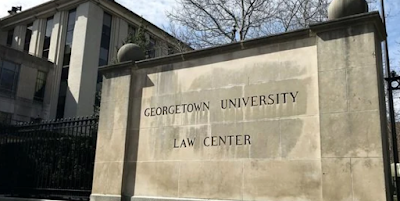Tuesday, May 10, 2022
A Professor over the edge
When you do what I do, your opinion is out there in the ether quite a bit. We law professors spend hours talking to our students in class, then write long articles, then many of us (these days) tweet our thoughts throughout the day. Sometimes, members of the press will want to talk about this or that legal issue, and sometimes we do that.
It's hard to be careful what you say all the time. And sometimes it is the things you say most carefully-- in long, thoroughly footnoted articles-- are what get you in trouble with people who hold opposing views. (See Bork, Robert).
Ilya Shapiro seems to find himself in trouble a lot lately, despite a strong record as a scholar at the Cato Institute (I have read and admired his work myself). He is a conservative, which means he is under more scrutiny because of the ideological imbalance of the academy. Even with that, he's said some things he probably wish he hadn't. Earlier this year, he was set to start a plum job at Georgetown Law School as director of the school's Center for the Constitution and a lecturer.
But then he tweeted out his thoughts on President Biden's Supreme Court selection process, saying (among other things) that Biden's decision to choose a black woman meant that people like his own preferred candidate (Judge Sri Srinivasan) would be neglected in favor of a "lesser black woman." It wasn't a tweet that aged well after Biden picked the eminently qualified Ketanji Brown Jackson.
Shapiro was placed on administrative leave pending an investigation.
Then, last week, he got another case of the blurts. He told a DC radio station, then Fox News, that he had heard that Justice Samuel Alito had gone into hiding in an "undisclosed location," a rumor that went crazy on the internet. It turned out he really didn't have a basis for that which he could remember.
It's so easy to say the wrong thing, of course-- but the consequences in such an interconnected world of uncensored media are such that the damage is too quickly done.


